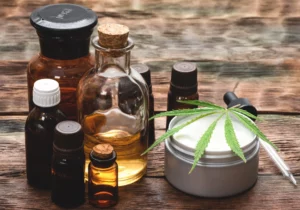As has been addressed numerous times on HelloMD, cannabis can be a viable replacement or supplement to opioids, and there are studies to support this: HelloMD and UC Berkeley released a study in 2017 that found 97% of respondents were able to decrease their opioid use with cannabis, and 81% believed that cannabis was more effective on its own for chronic pain.
These findings, while striking, already confirm what many folks involved in the medical marijuana community intuitively know: that cannabis’s pain-fighting properties may be able to curb the opioid epidemic by helping folks reduce or stop their opioid intake.
FOLLOW US ON FACEBOOK & INSTAGRAM
Opioid Use Declines With the Introduction of Cannabis
This phenomenon isn’t new: A 2016 survey of patients at a medical marijuana dispensary in Michigan found similar results. Researchers used an online questionnaire to survey 244 medical marijuana patients with chronic pain from November 2013 to February 2015.
Almost two-thirds (64%) of study participants were able to decrease their opioid use; they also saw a decrease in the number of medications taken and side effects associated with medications. Meanwhile, 45% said that cannabis had improved their quality of life.
Researchers also noted a decrease in nonsteroidal anti-inflammatory drugs (NSAIDs) and antidepressant use, possibly due to the pain-sparing effects of cannabis. “One theory as to why this occurs is that cannabis has a synergistic effect with opioids, so patients need to take fewer opioids to get the same amount of pain relief,” says HelloMD’s Chief Medical Officer Perry Solomon, M.D.
RELATED: HOW CANNABIS CAN BREAK THE CYCLE OF OPIOID ABUSE
Chronic Pain Sufferers Find Relief With Cannabis
The Michigan study draws similar conclusions to that of the HelloMD-UC Berkeley study: Chronic pain patients are finding that by substituting or supplementing their intake of opioids with cannabis, they’re able to achieve similar or better benefits with fewer side effects.
“The obvious conclusion with these types of studies is that with a decreased amount of opioid intake, the chance of an overdose is minimized,” says Dr. Solomon.
Studies are already starting to corroborate this connection: A 2015 study found that the legalization of cannabis in Colorado was associated with a short-term decrease in opioid-related deaths. As the opioid epidemic rages on, it’s vital that more research be conducted to validate these findings.
Photo credit: e-Magine Art
If you’re new to cannabis and want to learn more, take a look at our [Cannabis 101]https://www.hellomd.com/articles/cannabis-101-what-you-need-to-know-about-marijuana) post. HelloMD can help you get your medical marijuana recommendation; it’s easy, private and 100% online.






